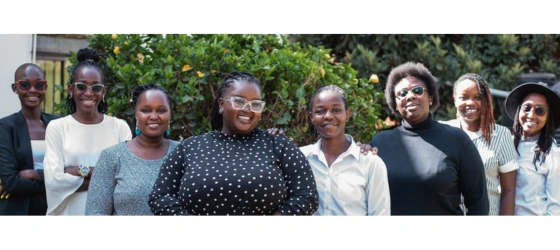Discover how the National Gay and Lesbian Human Rights Commission won a decisive victory against the ban on their organization and the implications of this decision for LGBTQ+ rights advocacy in Africa.

It’s unfortunate to note that Kenya, like many African countries, still criminalizes same-sex relationships. Unfortunately, the laws in force are very strict, and their consequences are severe for members of the LGBTQ+ community.
Articles 162 and 165 of the Kenyan Penal Code, which are vestiges of colonial dominance, explicitly condemn same-sex relationships between consenting adults, with sentences of up to 14 years in prison.
Despite requests for the decriminalization of same-sex relationships from three LGBTQ+ organizations, the country’s Supreme Court refused to invalidate these laws in 2019, thus preserving a system that goes against the rights to equality, non-discrimination, human dignity, security, privacy, and health, which are enshrined in the constitution.
Furthermore, since 2010, the Kenyan Constitution prohibits same-sex marriage. Thus, the country’s law states that “every adult has the right to marry [but] to a person of the opposite sex based on the free consent of the parties.”
This situation is reinforced by the stated positions of the country’s political leaders, who refuse the decriminalization of same-sex relationships.

Former Kenyan President Uhuru Kenyatta reaffirmed his stance on same-sex marriage, categorically declaring he would not allow it.

Last month, presiding over celebrations for International Women’s Day, the new Kenyan President William Ruto reiterated his position on same-sex relationships. He firmly stated that Kenya was a Christian nation and that neither “gayism nor lesbianism” would be tolerated in the country.
“Our values, customs, and Christianity do not allow us to support same-sex marriages,” he said. “We have laws that govern us here in Kenya. I want to tell you that will not be possible… It can happen in other countries, but not here.”

In a historic decision by the Kenyan Supreme Court, the National Gay and Lesbian Human Rights Commission won a significant victory against the Kenyan government.
The National Gay and Lesbian Human Rights Commission (NGLHRC), founded in 2012, is a national independent human rights institution that works tirelessly to promote and protect LGBTIQ+ equality and integration in Kenya. They aim to promote effective participation in society. Their main activities include legal aid, strategic litigation, public advocacy, and training and civic education on the rights and needs of sexual and gender minorities in the country.
However, in 2013, the NGLHRC was denied official registration by the NGO Coordination Board due to the words “gays” and “lesbians” in their name. Despite this blow, the organization persevered and took legal action.
After a favorable High Court ruling in 2015, the Court of Appeal made a similar decision in 2019. Finally, in 2023, the Supreme Court upheld the rights of the NGLHRC and its partners, the Gay and Lesbian Coalition of Kenya (GALCK) and the LGBTIQ Coalition of Nyanza, Rift Valley, to be registered as NGO organizations by the authorities.
This historic decision by the Kenyan Supreme Court is a significant milestone and an essential step forward in the fight for equality. It provides hope that LGBTQ+ organizations can operate freely without fear of persecution or censorship.

However, the historic decision favoring LGBTQ+ activists has been overshadowed by the Supreme Court's position. The Court refused to question the illegality of same-sex relations in Kenya. This decision is a legal setback for the community.
During the trial, activists argued that this prohibition violates several fundamental rights, such as privacy, equality, non-discrimination, and dignity. Unfortunately, their appeal was denied, causing consternation and anger among the LGBTQ+ community, which hoped for a significant advancement in their rights in Kenya.
Despite the historic decision of the Kenyan Supreme Court to allow an LGBTQ+ organization to be officially registered as a charitable organization, the community still faces a difficult situation in the country. Laws criminalizing same-sex relationships are still in force, and the Court’s decision not to go further in this area has disappointed many of them. However, this victory is a glimmer of hope for the future of LGBTQ+ rights in Africa. The efforts of those who continue to fight for the rights and recognition of the community should not be discouraged. On the contrary, it is a sign that change is slowly taking place. In the future, we may see more victories and increasing recognition of LGBTQ+ rights in Kenya and throughout Africa.
Comments